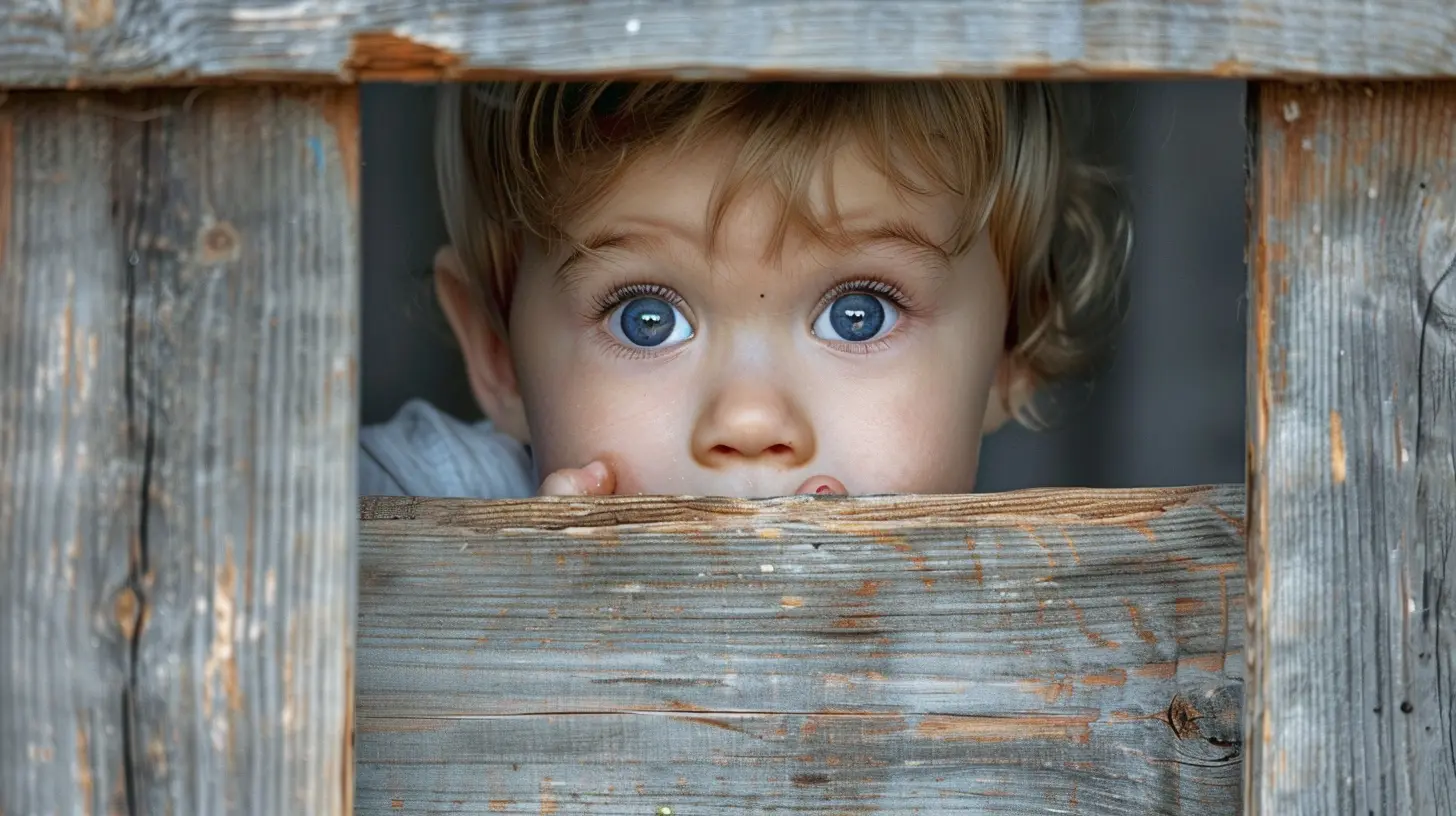21 April 2025
Childhood isn’t just about learning ABCs and 123s—it’s about feeling safe, loved, and understood. Ever wonder why some kids thrive while others struggle? It’s not just genetics or sheer luck. Emotional security plays a MASSIVE role in shaping a child’s development, and trust me, this is one parenting aspect you DON’T want to overlook.
So, grab your coffee (or wine, no judgment here), and let’s dive into why emotional security is the secret sauce to raising happy, confident, and resilient little humans.

What Exactly is Emotional Security?
Before we get ahead of ourselves, let’s break it down. Emotional security is all about a child feeling safe, valued, and supported emotionally. It’s that deep-rooted confidence that no matter what happens, they have a safe place (YOU!) to turn to.It’s not just about shielding them from bad stuff—it’s about teaching them that they can handle life’s ups and downs without falling apart. Kind of like bumper lanes in bowling—you’re there to keep them from going completely off track but still letting them take the shot.

Why Emotional Security is a Non-Negotiable in Childhood
1. It Builds a Child’s Confidence
Confident kids don’t just magically appear out of thin air. They’re raised in environments where they feel loved and supported. Emotional security gives kids the freedom to try, fail, and still know they’re enough.Think about it—if a child grows up constantly second-guessing whether they’re loved or accepted, how can they ever feel truly confident? Spoiler alert: They won’t.
2. It Strengthens Emotional Regulation
Tantrums, meltdowns, and outbursts—ah, the charming realities of childhood. But emotional security helps kids develop emotional regulation. When they know they’re in a safe space, they’re more likely to learn how to manage their feelings instead of letting them explode like a shaken soda can.A child who feels emotionally secure will eventually learn, Hey, my feelings are valid, and I don’t have to scream my lungs out to be heard. Now, isn’t that a parenting win?
3. It Lays the Foundation for Healthy Relationships
You want your child to grow up forming strong, healthy connections, right? Well, that starts with emotional security. When kids feel safe and valued, they develop trust and empathy—two essential ingredients for meaningful relationships.On the flip side, children who lack emotional security often grow up struggling with trust issues, anxiety, or even emotional detachment. And let’s be real, nobody wants their kid to end up in therapy because they didn’t feel safe emotionally as a child.
4. It Reduces Anxiety and Stress
Childhood stress is a thing, and it’s no joke. When kids feel emotionally secure, they experience less anxiety because they trust that no matter what happens, they have a solid support system. Even when things go wrong, they know they won’t face it alone.Compare that to a child who constantly feels like they have to fend for themselves emotionally—stress levels through the roof! And we all know how stress messes with sleep, focus, and overall happiness.
5. It Encourages Independence (Ironically, Yes!)
Here’s the plot twist. Emotionally secure kids don’t cling to their parents forever. Instead, they grow into independent, capable adults.Why? Because when a child knows they always have a soft place to land, they’re more willing to spread their wings. They take risks, explore new things, and step out of their comfort zone—because deep down, they know they have a safety net.

How to Foster Emotional Security in Your Child
Alright, now that we’ve established why emotional security is the holy grail of childhood development, let’s get into the how. Because knowing the importance means jack if we don’t actually apply it.1. Be Emotionally Available
This one’s simple but often overlooked. Kids need parents who see them—like really see them. That means putting the phone down, listening when they talk, and acknowledging their feelings instead of brushing them off.A child who constantly hears, “Stop crying, it’s not a big deal,” learns that their emotions don’t matter. And trust me, that’s NOT the message you want to send.
2. Validate Their Feelings (Even When They’re Extra!)
Ever had your child sob hysterically over the wrong color cup? Yeah, we’ve all been there. But here’s the deal—their emotions are real, even if they don’t make sense to you.Instead of dismissing their feelings, try saying, “I see that you're really upset about this. It’s okay to feel that way.” Just like that, you're reinforcing emotional security by letting them know their feelings are valid.
3. Be Their Safe Space
This doesn’t mean sugarcoating everything or shielding them from reality. It means being the person they can come to, judgment-free, no matter what.If your child knows they can talk to you about their fears, mistakes, and struggles without backlash, they’ll always turn to you instead of bottling everything up.
4. Show Consistency & Reliability
Kids thrive on predictability. If they never know whether you’ll respond with love or irritation, they start walking on eggshells. That’s NOT emotional security.Being a consistent and reliable presence in their life helps them feel safe because they know what to expect from you. No, this doesn’t mean being perfect (spoiler: no parent is), but it does mean striving for consistency in your emotional availability.
5. Affection Goes a Long Way
Hugs, kisses, and cuddles aren’t just for babies. Physical touch is a huge component of emotional security. A simple hug or “I love you” can be the difference between a kid who feels secure and one who constantly seeks external validation.Even as they grow older, never underestimate the power of affectionate gestures. Yes, even when they start rolling their eyes at you in their teen years.

The Long-Term Impact of Emotional Security
When you provide emotional security to your child, you’re not just improving their childhood—you’re shaping their entire future.Kids who grow up feeling emotionally secure often become:
✅ More confident in themselves and their abilities
✅ Better at handling emotions and stress
✅ Stronger in forming healthy, lasting relationships
✅ More resilient when facing life’s challenges
✅ Less likely to struggle with anxiety, depression, or trust issues
On the flip side, children who grow up without emotional security often battle low self-esteem, fear, and difficulty trusting others. And let’s be honest—that’s not the future any parent wants for their child.
Final Thoughts
Raising emotionally secure kids isn’t about being the perfect parent. (Because newsflash: That doesn’t exist.) It’s about being present, validating their emotions, and giving them the safety net they need to grow.Bottom line? Emotional security is not just some fluffy parenting trend. It’s the foundation of your child’s emotional well-being, confidence, and future success. So, keep showing up, keep loving them fiercely, and keep being their safe space.
Because at the end of the day, that is what truly shapes childhood development.




Camille Good
Emotional security lays the foundation for healthy childhood development, fostering resilience, effective communication, and strong relationships. Prioritizing emotional well-being empowers children to thrive in all aspects of life.
April 24, 2025 at 4:07 PM